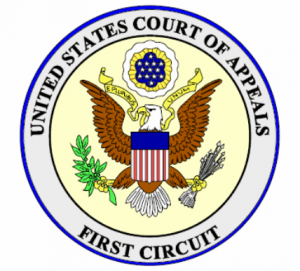The U.S. Court of Appeals for the First Circuit recently held that a borrower’s claim under the Massachusetts Predatory Home Loan Practices Act (MPHLPA) was barred by the applicable five-year statute of limitations where the loan was extended more than five years before the complaint was filed and the borrower did not allege facts to demonstrate that tolling should apply. Accordingly, the First Circuit affirmed the ruling of the trial court dismissing the borrower’s complaint with prejudice, and denying his motion for leave to file an amended complaint as futile. A copy of the opinion in Rife v. One West…
Posts tagged as “First Circuit”
The U.S. Court of Appeals for the First Circuit recently held that a borrower cannot invoke the discovery rule to assert an otherwise untimely Massachusetts UDAAP claim (Chapter 93A) relating to a loan modification agreement, because the alleged harm was not “inherently unknowable” at the time of its occurrence. In so ruling, the Court determined that the borrower knew he was required to make monthly payments when he signed the loan modification agreement. Therefore, the statute of limitations began to run when the borrower stopped making payments, not when the creditor provided notice of the default. A copy of the opinion…
The U.S. Court of Appeals for the First Circuit recently affirmed the dismissal of a lawsuit by borrowers seeking to enjoin a mortgage foreclosure sale, holding that (a) the original lender’s nominee, MERS, could validly assign the mortgage without holding beneficial title to the underlying property and that borrowers do not have standing to challenge a mortgage assignment based on an alleged violation of a trust’s pooling and servicing agreement; and (b) the mortgage was not void under Massachusetts’s “obsolete mortgage” statute, under which a mortgage becomes obsolete and is automatically discharged five years after the expiration of the stated…
The U.S. Court of Appeals for the First Circuit recently affirmed a bankruptcy court’s ruling that a mortgagee did not violate the discharge injunction in 11 U.S.C. § 524(a) by sending IRS 1099-A forms to borrowers after their discharge, agreeing that the IRS forms were not objectively coercive attempts to collect a debt. A copy of the opinion in Bates v. CitiMortgage, Inc. is available at: Link to Opinion. The borrowers obtained a mortgage loan secured by their home. They filed bankruptcy under Chapter 7 in 2008 and received a discharge of their personal liability for the loan in 2009.…
The U.S. Court of Appeals for the First Circuit recently rejected a bankruptcy trustee’s effort to avoid a mortgage on the basis that the acknowledgment signed by the borrowers’ attorney-in-fact was defective under Massachusetts law, holding that the acknowledgment was not materially defective because as a matter of agency law the attorney-in-fact’s signature was the borrowers’ “free act and deed.” A copy of the opinion in HSBC Bank USA, N.A. v. Lassman is available at: Link to Opinion. The borrowers purchased a parcel of “registered land” in 1994 in North Attleboro, Mass. (the “subject property”). “Registered land” is real property…
The U.S. Court of Appeals for the First Circuit recently denied a bank’s request pursuant to the Bank Secrecy Act to shield certain business records from being produced and used in a putative class action, holding that none of the subject documents constitute a draft SAR, or reflect the decision-making process as to whether a SAR should be filed, the process of preparing a SAR, or an attempt to explain the content of a SAR post-filing. A copy of the opinion is available at: Link to Opinion. The lead plaintiffs sued the bank, alleging that a customer used his accounts…
The U.S. Court of Appeals for the First Circuit recently affirmed the dismissal of two mortgagors’ quiet title allegations against a mortgagee, holding that the plaintiff mortgagors could not assert a quiet title claim under Rhode Island law against the mortgagee defendants because Rhode Island is a title theory state, and the mortgagors’ equitable interest in title to the property at issue was not adverse to the mortgagee’s legal interest in title. A copy of the opinion is available at: Link to Opinion. The plaintiff mortgagors (one of whom is an attorney) claimed uncertainty as to which entity held an…







